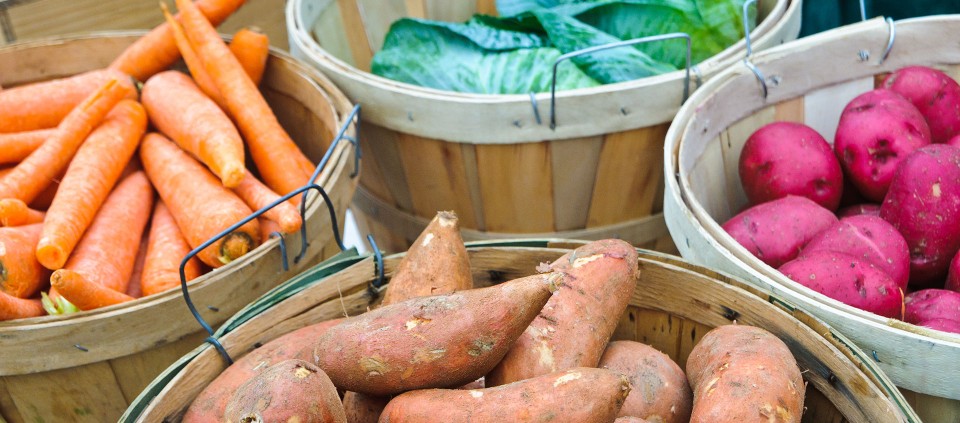Five Easy Sustainable-Nutrition Practices: Good for the Planet and Good for You

Can your food actions impact climate change—does what you do really matter? That can feel like an overwhelming question. Fear not, my friends, because, on this one, scientists have a clear and resounding consensus: Yes.
Nutritionally, what’s good for you is good for the planet, and is a central global strategy for addressing climate change.
This year, a United Nations commission of 37 scientists from 16 countries developed a set of guidelines to move toward sustainability of the food supply. Their work translates into surprisingly simple and accessible actions for everyone: Eat healthy, be mindful, and minimize food waste.
So, just what is sustainable nutrition?
We hear a lot about sustainability, but what does it mean in regard to food and eating? The UN’s definition suggests that sustainability refers to meeting our present needs without compromising the ability of future generations to meet theirs. Here are five practices that you can do right now to help shift the environment toward a more sustainable future.
- Take your next step toward a whole-food, plant-based diet. Happily, eating well for your own body is one of the most important ways that you can practice sustainable nutrition. Moving toward a plate half-filled with plants—with a focus on seasonal fruits and vegetables—is not only great for your own health, but also for the health of the planet. The Centers for Disease Control recommend that we eat somewhere in the area of nine to 13 half-cup servings of plants each day. If you don’t eat that now, think about your favorites and enjoy another daily serving. Let sustainability motivate you to eat your vegetables for the future well-being of all
- Support sustainable food systems. Farmers' markets are rocking, and are extending beyond the summer months, even here in New England. While it’s hard to eat 100 percent local through the winter, we’ve been enjoying delicious potatoes, sweet potatoes, and cold-frame local greens all season. Nearly every community has a local sustainable food system sprouting up. Keep an eye out for your neighbors growing and raising local food all year long.
- Practice mindful eating. Mindful eating is a contemplative tool that encourages us to slow down and savor each bite, moment by moment. As you breathe, relax, and chew more slowly, you might notice that it becomes easier to savor what you’re eating and gain a felt sense of your connection to your food, and the whole food system. Over time, a mindful eating practice can help you feed yourself with loving-kindness and a deeper awareness of the nourishment you need to sustain your life force.
- Be a food waste ninja. Are you a food planner, a saver, or a composter? If you’re a planner, you can sketch out a weekly game plan wherein you use leftovers from the day before for lunches and dinners the next day. For example, save wilted veggies in the freezer to make a big pot of soup on the weekend. I am ever-amazed at the beauty of composting. If you have a yard, start a pile of kitchen scraps and brown matter (leaves and grass clippings). A couple seasons later, you will have rich dark earth—gardener’s gold—for your garden or yard.
- Remember that small steps are big steps in disguise. Nearly anything you do begins a cycle of change. The steps you take toward eating a whole-food, plant-based diet; the scraps of food you repurpose; and the love and attention you give to your own nutritional well-being all matter. Everything we do impacts all being everywhere, and the very earth itself. You can make a difference.
Read more about what everyone can do to practice sustainable nutrition.
Find out about nutrition programs with Annie B. Kay at Kripalu.
© Kripalu Center for Yoga & Health. All rights reserved. To request permission to reprint, please email editor@kripalu.org.
Annie B. Kay, MS, RDN, E-RYT 500, C-IAYT, is an author, nutritionist, Kripalu faculty member, and important voice in whole-foods nutrition and yoga.
Full Bio and Programs